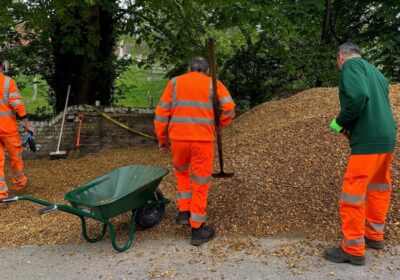RAIL users across the south west of England will be rejoicing as the full West of England Line timetable is set to be restored later this month.
Travellers have had to contend with a reduced service since August as the hot and dry weather caused clay embankments between Gillingham in Dorset and Axminster in Devon to shrink, an issue known as soil moisture deficit.
But conditions have now improved and engineers are carrying out track repairs that will allow trains to travel at regular speeds.
The full timetable is set to be restored on November 29.
When restored, direct train services between London Waterloo and Exeter St Davids will once again run hourly, to their regular journey times. Customers can check before travelling with journey planners now fully up to date.
Salisbury & Avon Gazette readers got in touch to complain about the reduces timetable, with many saying trains were cancelled and often delayed without warning, with criticisms made to the newly nationalised South Western Railway (SWR) which the government described as a “new dawn for rail”.
READ MORE: Complaints roll in after South Western Railway cancellations and delays affect users
READ MORE: Overspend at Wiltshire Council worse than previously thought
READ MORE: Shelving Stonehenge tunnel plans would “throw away a once-in-a-generation opportunity”
“We’ve now come to expect we will have difficulties on at least one leg of our journey,” one rail user said. “While I appreciate this is sometimes unavoidable, its shocking how frequently this is happening.”
M L Carter said: “This appalling SWR service continues to deteriorate. Changes to timetable, a reduced service and last minute cancellations are making it impossible for commuters reliably to reach their places of work on time thus threatening careers and livelihoods.
“Local holidaymakers and visitors from abroad can only look forward to disrupted travel causing them stress and uncertainty about being able to continue with the onward journeys they have booked and planned.
“Families who need to use the rail service abandon meet-ups and social activities. Whatever the reasons it is a sad, broken and distressing situation. What hope is there of any improvement? The outlook is depressing.”
Bruce Duncan, chair of the Salisbury-Exeter Rail User Group, welcomed the news.
“After a very challenging few months for students, commuters and leisure travellers using SWR’s services between Salisbury and Exeter, we are absolutely delighted the hourly timetable will be restored from November 29,” he said.
“The SWR and Network Rail team have worked hard to remedy the issues caused by the dry embankments, made particularly challenging by the extensive sections of single track on the route, and we look forward to working with them on long term plans to mitigate the ongoing impacts of climate change.”
The amended timetable was introduced in August following the driest spring ever recorded.
This disturbed tracks above the embankments and forced engineers to introduce speed restrictions, with trains travelling at much slower speeds than normal.
Due to the single line sections of track between Salisbury and Exeter St Davids, trains were then unable to pass each other in their usual locations, and an amended timetable was needed.
Tom Desmond, Network Rail’s Wessex route operations director, speaking on behalf of South Western Railway and Network Rail, said: “We know just how important this line is to its local communities, with our customers using services to reach their places of work, or local schools and colleges.
“We have closely monitored ground conditions and are now able to start track repairs. Once those repairs are complete, trains will be able to run at full line speeds, bringing the full timetable back into operation.
“We are very grateful to our customers for their continued patience and would like to sincerely apologise for the disruption they have experienced since August.”
SWR was nationalised in May earlier this year – the first service to transfer back into public control under new legislation, the Passenger Railway Services (Public Ownership) Act 2024.
In an announcement back in May, the Government said operators would have to “earn the right to be called Great British Railways” and would have to meet rigorous, bespoke performance standards on things like punctuality, cancellation and passenger experience.
Some rail users have linked the poor performance of SWR over the summer with the move to nationalise the service, but SWR refute this, saying it is not linked in any way to the transfer into public ownership.









Leave a Reply